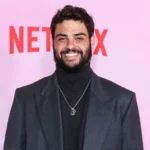[ad_1]
Aida Rodriguez is a Puerto Rican and Dominican comedian, actor, and writer. In 2019, she had her own half-hour special on Netflix’s hit comedy series “They Ready,” executive-produced by Tiffany Haddish and Wanda Sykes. In November 2021, she released her first-hour stand-up special “Fighting Words,” which premiered on Max, and in October 2023, Rodriguez released her memoir “Legitimate Kid.”
For Mental Health Awareness Month, we asked Latine comedians we admire how comedy has supported them in overcoming trauma and confronting life’s most significant challenges. Read the pieces here.
I’ve always viewed comedy as a coping mechanism for people who are in lower economic situations or just dealing with very hard circumstances. In the words of Kevin Hart: “Laugh at my pain.” My upbringing was no different. I didn’t really engage in comedy as much when I was younger because I was a very shy and timid kid. But humor was always around me, and I learned at a very young age the power of laughter.
My grandmother was a very funny woman. She had this amazing ability to present heavy topics like poverty and even death in ways that were humorous. At first, I used to think it was insensitive, but I quickly learned that it was just a coping mechanism and a way to make things digestible because life was already hard enough. Growing up, I saw it all. There was poverty. There was violence. There were drugs, adultery, and misogyny. For some people, laughter was the only tool they had to navigate all that.
It was at school that I really started to find my comedic voice. Comedy became my way of surviving bullies and mean people. It became my armor and way of protecting myself from the kids who were clearly going through stuff at home but needed to poke fun at others to feel better about themselves. Instead of being confrontational or volatile, I was just funny.
My grandmother and mother heavily influenced my comedy and sense of humor. They were naturally funny women. My mom is a very confrontational woman. She would get into it with the other women in the building or in the neighborhood, and would always come out winning because she knew how to shut people down with her words — and oftentimes, the things she said were just straight-up funny. My grandmother was always so witty with it. It’s funny when I hear people say that women aren’t funny, or I’ll occasionally hear Latino men say they don’t really like women comedians, and then you hear them tell their stories. They’re always talking about how hilarious their grandmothers or their mothers are. Latinas are really the comedians in the family. A lot of us are naturally funny — it’s in our blood.
I started watching stand-up comedy when I was little. My uncle used to listen to Richard Pryor. That was my first introduction to stand-up comedy. I loved Johnny Carson, and I loved “I Love Lucy.” I used to watch El Chavo and La Chilindrina with my grandmother. In Miami, they had a show called “Qué Pasa USA.” It was a show about a Cuban family, and the grandmother on the show was one of the funniest people I’ve ever seen. I started appreciating humor and experienced the relief it provided at a relatively young age. But it was not until later in my life that I realized I wanted to do this for a living.
Comedy came after acting. I was a model for years, and I moved to LA in 2000 to become an actor. I started doing stand-up in 2008. I had gone out for brunch to celebrate a friend’s birthday, and she asked us to roast her. I roasted her, and a friend there said, “Oh, you should be doing stand-up. You’re naturally funny.” He gave me the address and information to an open mic, and I went and did it, and I never stopped.
Once I started performing at open mics, I started noticing how healing comedy was — not just for the audience but also for me. I didn’t really start with observational humor. I went straight to the wound. My first jokes were about my modeling career and becoming anorexic. I addressed difficult things I had experienced in my own life, and it helped me heal from those experiences while also making folks who could relate feel seen.
My work became cathartic when I started writing material about my childhood. People would approach me after my sets and say, “Oh my god. Thank you. I’ve never seen a version of myself or a reflection of myself.” My childhood started to influence so much of my material that it became like therapy for me. I started unpacking and healing from many traumas I experienced growing up, eventually inspiring me to write my memoir, “Legitimate Kid.” It made me realize how much our stories matter, and we shouldn’t belittle them because white America is telling us they don’t matter. That is what has kept the fuel going for me.
Making jokes about my family, my neighborhood, and the hard things I experienced growing up has allowed others to see themselves in my stories. In terms of my own healing, that relatability was part of it. It was seeing that I wasn’t alone and that there are others who also didn’t grow up having their fathers in their lives. It was the first time I started to feel proud of where I came from, and it helped me work through some of the stuff I was dealing with. Even with the jokes about my mom, many people would come up to me and tell me their mom was the same way. In many ways, it’s also healed my relationship with my mom because performing and having people heal through my words contributes to my own healing.
As a Latina, we’re raised with this mentality that you don’t share the family’s business. So, while I initially had my hesitations, they approved every joke I’ve ever told about the family before it made it to the stage. I always make sure that they’re cool with it. I was especially careful when it came to my mom and my daughter because sexism and misogyny, especially in our communities, are rampant and real, and people love to demonize women. So, I was always very leery about presenting them in a way where it would take off on its own, and people would talk shit.
Making jokes about the things I experienced growing up has also allowed me to see the beauty in my upbringing. It wasn’t all dark, and it wasn’t all bad. When I started doing stand-up, I used to hear all the time people say things like, “All these Black and Latino comedians talk about is their lives in the hood, food stamps, and being broke.” You would hear that from white comics how our comedy wasn’t “elevated.” But I never allowed them to push me into a corner where I felt like I had to emulate them to be of value because a lot of people do. At the beginning of my career, I definitely saw that there was a lot of pressure placed on comedians of color not to perpetuate stereotypes, but the truth is that some of our relatives are hood. Some of our relatives did behave a certain way, and there’s nothing wrong with that, and that’s not just exclusive to people of color — there are white people like that as well.
Comedy brings us all together. There’s a connective tissue there, especially in a community with so much diversity. Through humor, we can find each other and find relatability. People loved when George Lopez talked about his grandmother because that’s something many of us have in common. Comedy also works as a universal language. Even if we’re not from the same culture, everybody laughs because it has this connective tissue. Comedy connects people of all backgrounds and walks of life through laughter.
— As told to Johanna Ferreira
Johanna Ferreira is the content director for POPSUGAR Juntos. With more than 10 years of experience, Johanna focuses on how intersectional identities are a central part of Latine culture. Previously, she spent close to three years as the deputy editor at HipLatina, and she has freelanced for numerous outlets including Refinery29, O Magazine, Allure, InStyle, and Well+Good. She has also moderated and spoken on numerous panels on Latine identity.




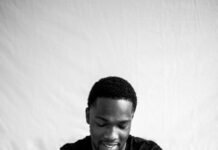
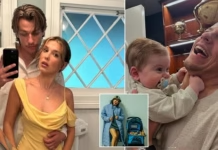
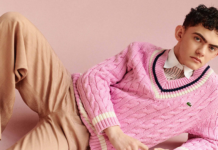
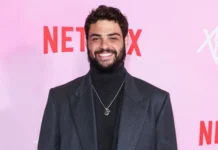
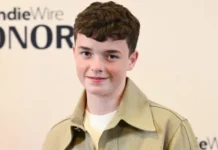


























:quality(85):upscale()/2024/05/02/871/n/1922283/819476466633ef9ebbe991.10498076_.jpg?w=696&resize=696,0&ssl=1)

:quality(85):upscale()/2024/08/26/163/n/1922283/64d5eb8566cd4005122c30.42614493_.jpg?w=150&resize=150,150&ssl=1)





